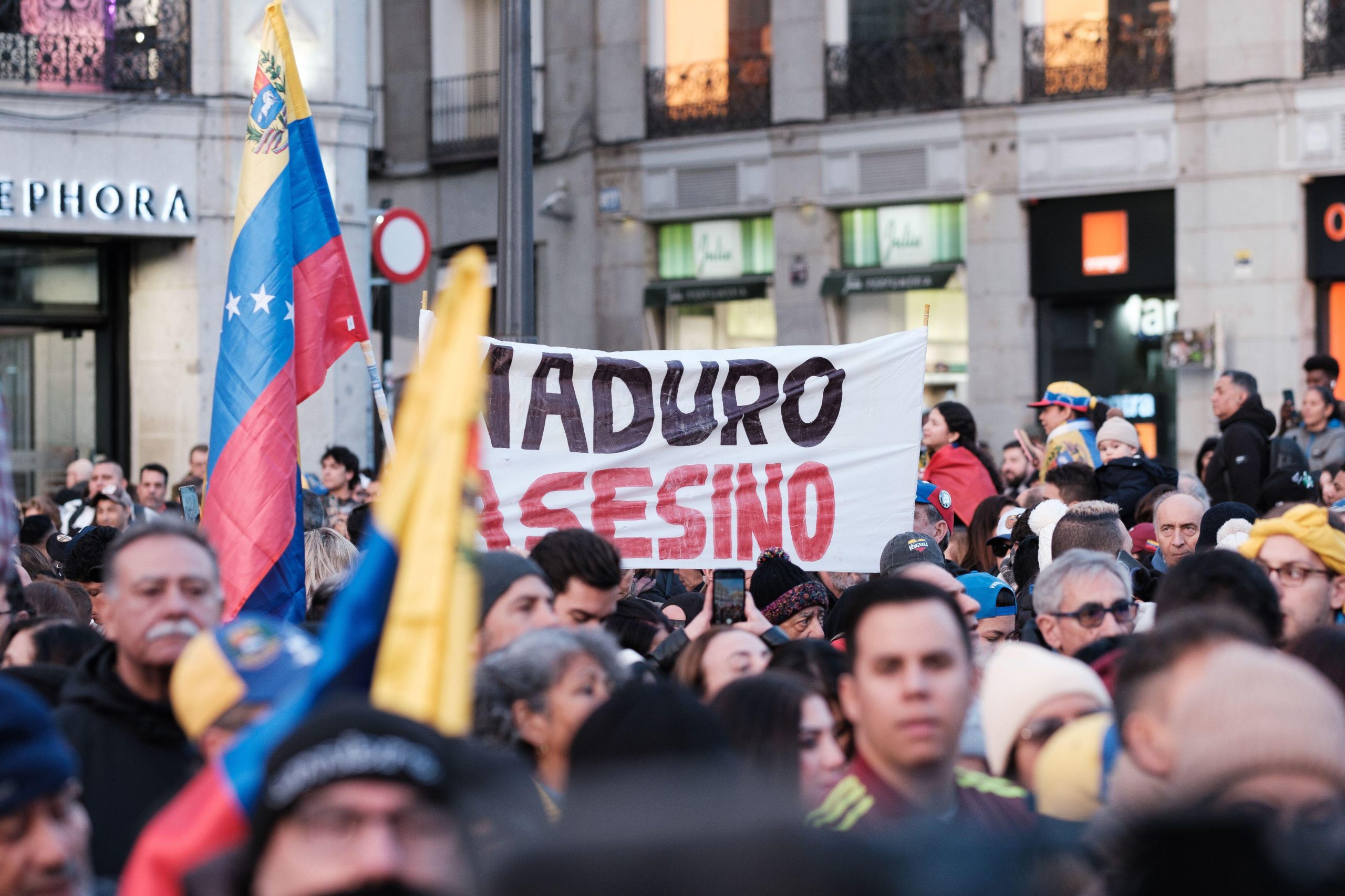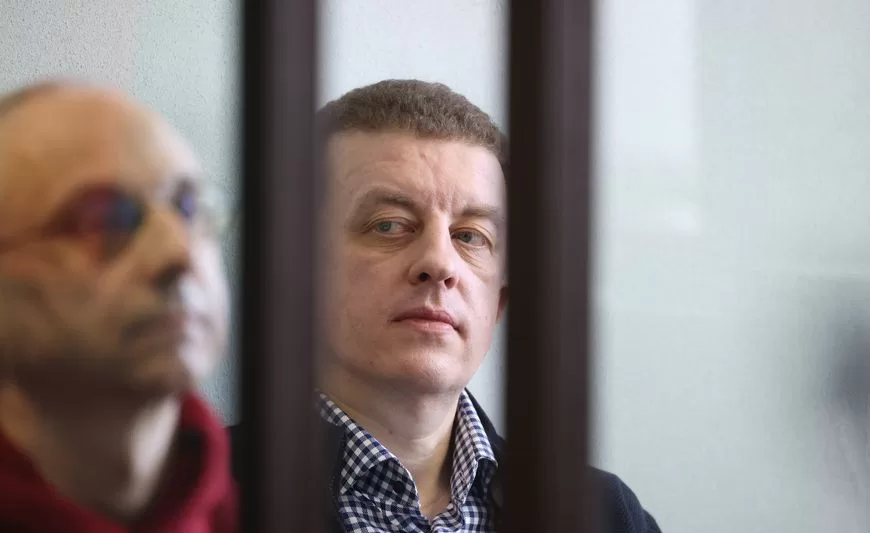This article first appeared in Volume 54, Issue 1 of our print edition of Index on Censorship, titled The forgotten patients: Lost voices in the global healthcare system, published on 11 April 2025. Read more about the issue here.
When lawyer Perkins Rocha was seized by forces while leaving a pharmacy in Caracas on 27 August 2024, his family found out he had been taken only when they saw a post on social media platform X.
A frantic investigation began to find out where Rocha, the legal co-ordinator for Venezuela’s election campaign for the political opposition, was being held – and to speak to those who had seen what had happened.
“Witnesses told us that hooded men approached him and a strong struggle began. They hit him and dragged him to one of the unmarked vehicles they were in, and took him away,” his son Santiago told Index. The family haven’t seen or heard from him since.
The highest number of political prisoners in Latin America
Rocha’s case is far from an isolated one. According to human rights organisation Foro Penal, Venezuela had 1,196 political prisoners as of 3 February 2025. The country has the most political prisoners in Latin America – followed by Cuba with 1,150 – and has a history of using repression and arbitrary detentions as a means of silencing and punishing those with anti-government views.
This pattern has intensified following the July 2024 presidential election, which incumbent Nicolás Maduro insisted he won despite evidence from voting tally receipts showing opposition candidate Edmundo González Urrutia won by a landslide with 67% of the vote.
Protests demanding that the state acknowledge the opposition’s legitimate win followed, and with them a swathe of arrests and detentions during random street searches by police looking for content on people’s phones that criticised the government. Others were detained during Operation Knock Knock, where security forces arrived at people’s houses (often late at night) to arrest them and take them to prison.
Arbitrary detentions designed to force dissenters to stay silent started well before last year’s election. But according to human rights group The Venezuelan Education-Action Programme on Human Rights (Provea), the sheer number of arrests in a short space of time during the 2024 crackdown was on a different level from previous years. Between 29 July and 13 August, roughly 2,400 people were arrested, which is an average of 150 arrests a day.
It is not only the scale of detentions that highlights the intensified repression but also the charges against those being held. According to Marino Alvarado, legal action co-ordinator at Provea, all the prisoners were initially charged with terrorism, including children and teenagers. Maduro referred to those detained as “terrorists” in a televised address.
“In some cases, in addition to the crime of terrorism, [they were charged with] treason, criminal association and other crimes, but all were tried by anti- terrorism courts,” Alvarado told Index. Legal representation is also unsatisfactory, with public lawyers being “imposed” on political prisoners rather than them having the option to choose a “trusted, private lawyer”. “In addition to having a lot of work, public lawyers receive direct orders from the state, and detained people are left without the right to a defence,” said Alvarado.
Dire conditions within prisons
Conditions within prisons are notoriously grim. Some do not permit visits from families, but others allow them every 15 days – although sometimes these are cancelled by the authorities. When people do see their loved ones, it is often a heart- wrenching experience. “I noticed he was shaky and nervous and I asked him what was wrong,” said Maritza, whose name has been changed for her own safety and for that of her son, who was detained a few days after the July 2024 protests. She described him as a young man who was normally calm and confident.
“Eventually he said to me, ‘Mum, when I get out of here I’m going to tell you everything I’ve been through, but while I’m here I’m going to keep quiet and endure what I’m living [through] because I don’t want to anger [the authorities].’” A report from the Committee for the Freedom of Political Prisoners (CLIPPVE) highlighted that food rations inside the prisons were often tiny and insufficient, sometimes contained insects and were rotten or not sufficiently cooked. The information is based on testimonies from families of those in jail, as well as ex-prisoners. Many of the prisoners have lost weight and have experienced stomach illnesses. One woman whose son has been held in Tocuyito Prison said she couldn’t even recognise him when she saw him. “He was so thin and malnourished that I had him in front of me and I wouldn’t know it was him,” she said.
In November and December, three political prisoners died. One of them, Jesús Manuel Martínez Medina, was detained on 29 July and allegedly mistreated and denied the necessary medical care to treat his Type II diabetes, according to CLIPPVE. The NGO says the 36-year-old’s health deteriorated rapidly due to lack of treatment. Although he was transferred to hospital, he died on 14 November during an operation to amputate his legs.
Medical attention is severely lacking in the prisons. Santiago Rocha said he was constantly worried about the health of his father, who suffers from hydrocephalus – a build-up of fluid in the brain. He has a fitted valve connected from his brain to his stomach to drain the fluid.
“We always have this fear that no one is watching him, no one is checking on him. Any blow or movement that is abrupt could alter the functioning of that valve and the hose,” the 30-year-old said. He eventually discovered his father had been taken to el Helicoide, a notorious jail known for holding political prisoners and for its use of torture. “We don’t know if my dad has seen the sun in days, weeks or months, if he has eaten well or if they have tortured him,” he added.
Erosion of a democratic state
Some of those taken have been tortured. One of those is Jesús Armas, an engineer, human rights activist and member of the opposition campaign team, who was taken by hooded individuals on 10 December 2024 while leaving a restaurant in Caracas and whose whereabouts were not known for days. “His girlfriend managed to see him for 15 minutes before he was transferred to el Helicoide prison. He told her he had been held in a clandestine house, suffocated with a bag and left tied to a chair for several days,” said Genesis Davila, a lawyer and founder of Defiende Venezuela, an organisation that presents human rights violations in Venezuela to international legal institutions.
As is the case with many political prisoners, public prosecutors, judges and defence lawyers denied knowing about Armas’s detention for days. “But while they said this, Jesús had already been presented before a court, there was already a prosecutor who knew the case and there was also a public defender who had been assigned to [his]’ case,” Davila said.
Repression has intensified under the socialist regime. When Hugo Chávez first took office in 1999, he did so on a wave of popular support and spent huge amounts on social programmes such as adult literacy projects and free community healthcare for impoverished communities, largely funded by the country’s oil wealth.
But alongside this he started to concentrate power, taking control of the Supreme Court and undermining the ability of journalists, human rights defenders and other Venezuelans to exercise fundamental rights, according to a Human Rights Watch report that reflected on his legacy.
Maduro took over the presidency when Hugo Chávez died of cancer in 2013. A drop in oil prices, mismanagement of resources and corruption led to a dire economic and humanitarian crisis (exacerbated by US sanctions, according to many analysts). Brutal state crackdowns on anti- government protests in 2014, 2017 and 2019 led to deaths and mass detentions. For Phil Gunson, a senior analyst at the think-tank International Crisis Group, repression has worsened significantly in Venezuela since 1999. The less popular the government became, the more it used repression to stay in power, which became even clearer in its use of heavy-handed tactics in the 2024 protests.
“The government is entirely dependent on the army and the police,” said Gunson. “That doesn’t just mean harassing and detaining dissidents but treating them so badly that no one dares to protest.” The analyst says impunity is another reason for rising repression. “Venezuelans have no recourse if they suffer abuse at the hands of the government, and members of the security forces can be fairly certain there will be no consequences if they commit human rights abuses.”
For those with families in prison, their daily nightmare is unbearable – yet they say giving up hope for their loved ones’ release and a free Venezuela is not an option. “I try to keep him in mind as I go about my day-to-day life, asking myself what he would want me to do at this moment,” Santiago Rocha said, describing his dad as a loving father and a man with strong ideals. “I keep him like this so I don’t feel far away from him and remember that all the work he – and the people who have worked with him – have done will not be in vain.






